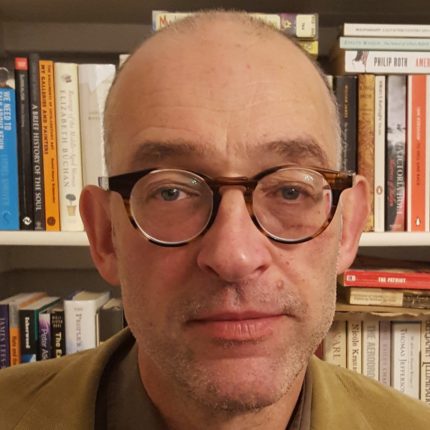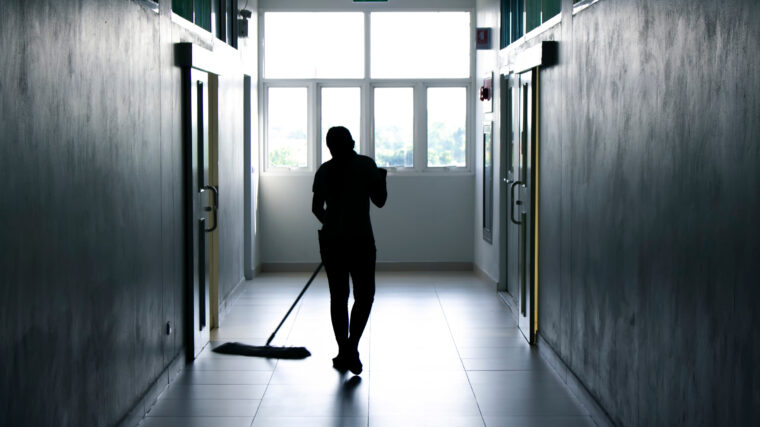An end to “intellectual bankruptcy and [to the] spiritual emptiness of the educational establishment”.
The pretentious language may not be to the taste of the present Mary Poppins, as played by Emily Blunt, but this and the prospect of hearing one lecturer in particular drew P.L. Travers, the tart Australian-born author of the original Mary Poppins books, to enrol at a newly opened “anti-university”.
Combined studies
She would study Literature and Commitment — “the causes and effects of political commitment in the modern novel … the political implications of experimental and avant-garde writing” — and Psychology and Religion.
The anti-university in question was the London Anti-University, a radical experiment in alternative higher education, which opened its doors in the UK capital in 1968.
Founded by a London-based psychiatrist named Joe Berke and a host of fellow-travelling British, South African and American Marxist intellectuals, it was based at 49 Rivington Street, Shoreditch, above what is today a fashionable and expensive shoe shop.
The Literature and Commitment course was led by a thirty-one-year-old novelist and historian named David Caute, but it was the one on Psychology and Religion that Travers was particularly attracted to. This was delivered by the Scottish psychiatrist, poet and writer R.D. Laing, then at the height of his extraordinary reputation.
The evidence for Travers’ involvement in the Anti-University is a letter which I recently found amongst Berke’s private papers. Berke, now an eminent veteran psychotherapist with a thriving practice in North London, was then at the forefront of a number of radical initiatives.
Dragons, and guerrilla warfare
Other Anti-University lecturers included noted musician Cornelius Cardew (“Experimental Music”) anthropologist Francis Huxley (“Dragons”) and theatre director and playwright Charles Marowitz (“A Critical View of Criticism”), while Berke himself offered a course on “Anti-Institutions”. Then there were courses on women’s liberation, Black power, the sociology of guerrilla warfare, and other controversial and modish subjects.
Travers, who had a weakness for gurus of all kinds, had previously nailed her colours to the Irish writer and nationalist George William Russell and to the Armenian mystic George Gurdjieff, so it was probably not surprising that she fell for Laing’s offering. Born in Maryborough, Queensland in 1899 to a neglectful mother and to a bank manager father who poetised and drank, she spent almost her entire life searching for spiritual enlightenment. Russell, who she first met in 1925, filled her up with theosophy and folklore, while Gurdjieff taught her a system of self-improvement based largely on dance and brainwashing.
Determined to trace the world’s religions to their primordial core, in 1943, she travelled to the American west, where she spent two summers studying the rites and mythology of the Navajo Indians, before voyaging even further onto the far side with a stint at Mabel Dodge Luhan’s celebrated artists’ colony at Taos, where no less a lopsided genius than D.H. Lawrence had once been in residence.
In short, she loved everything primitive, magical, fairy-like and mystical and yearned for the significant moment.
As for Laing, he lectured for four weeks on various aspects of “inner” space, with particular reference to the “Greek, Christian and Egyptian mythologies”. His and Caute’s slightly less predictable offering occupied the two complementary ends of the Anti-University’s inner-and-outer revolutionary syllabus.
Student surveyed
Yet Travers letter, written on headed notepaper from her house at 29 Shawfield Street, Chelsea, and dated 6 October 1968, shows that her studies at the Anti-University did not go to plan. Although she enjoyed some of the features that its cheap and cheerful, free-wheeling, can-do, ideology offered her, she told Berke that she had a ‘strong feeling’ that she would not want to enrol again unless the courses were ‘better and more lively.’
Of course, I may be being very unfair but the one I attended because the source material interested me and I was familiar with it [which is to say, Caute’s effort] … never even approached its source material but consisted of a tortured young man reading out to a gaping group of people his own special excerpts from Sartre and Genet.
While as for Laing’s effort, although she had no criticisms of his teaching ability, her fellow students, she thought, were dull and feeble.
I would like to see the idea of the Anti-University take root in England but, if possible, at University Level, and not as it seemed to me, at some level round about the fifth form”, she added. “But I’m afraid that’s typically English.













